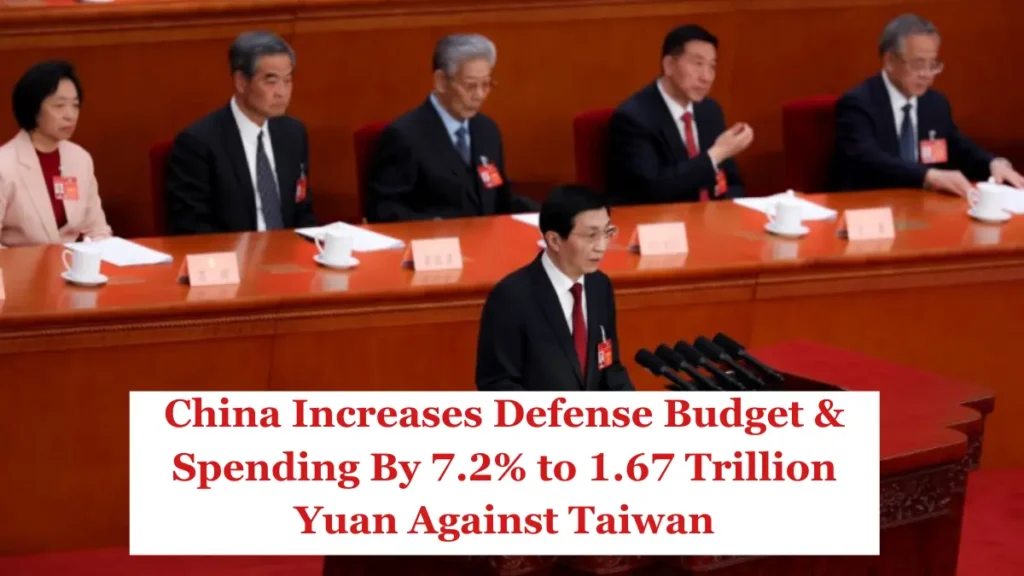China’s defense budget is poised for a 7.2% boost to 1.67 trillion yuan in 2024, as per the Ministry of Finance’s latest budget report. This surge, unveiled during Beijing’s annual parliamentary gatherings, signals the nation’s commitment to bolstering its military capabilities.
This rise in spending coincided with a shift in rhetoric regarding Taiwan, omitting the phrase “peaceful reunification” from official discourse.
Analysts note the significance of this change, particularly against the backdrop of escalating tensions in East Asia, particularly concerning Taiwan.
Amid a struggling economy, China’s prioritization of defense spending underscores the strategic importance of Taiwan, as emphasized by defense scholar Li Mingjiang. Since Xi Jinping assumed office, military expenditure has more than doubled, reaching 1.67 trillion yuan this year, consistently outpacing economic growth targets.
This trend has raised concerns among neighboring countries and the United States regarding China’s strategic intentions and military capabilities.
The Japanese government, through spokesperson Yoshimasa Hayashi, urged Beijing to adopt greater transparency in its military spending, highlighting the potential repercussions for regional peace and stability.
Despite concerns, security scholar James Char notes that China’s defense budget has remained proportionate to its GDP over the past decade. However, the long-term sustainability of this expenditure is contingent on the country’s economic trajectory.
The modernization drive of China’s military remains a top priority, with substantial investments allocated towards acquiring advanced weaponry and enhancing resource management. Efforts to streamline procurement processes have been underscored by high-profile personnel purges within the military leadership.
These developments coincide with China’s assertive rhetoric regarding Taiwan, signaling a potentially more aggressive stance towards the island nation.
As China reinforces its stance on Taiwan, observers note a moderate hardening of language, reflecting a delicate balance between projecting strength and maintaining diplomatic relations. This shift in tone comes amid heightened tensions following Taiwan’s presidential election and signals China’s steadfast opposition to any moves towards Taiwanese independence.



Thank you for your sharing. I am worried that I lack creative ideas. It is your article that makes me full of hope. Thank you. But, I have a question, can you help me?